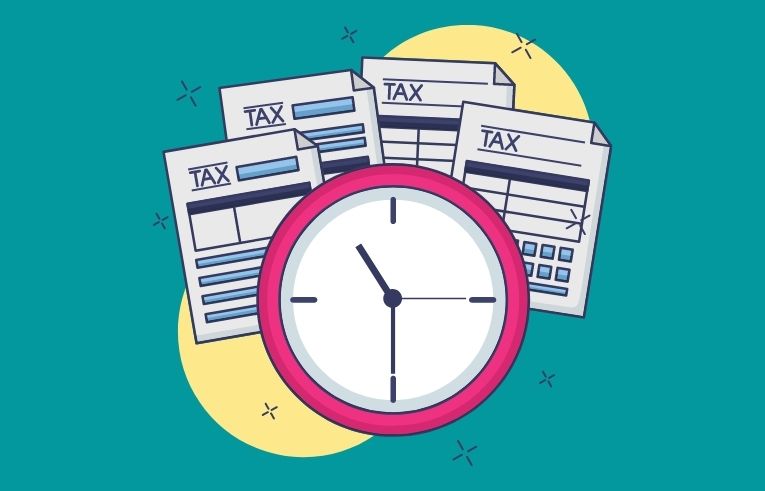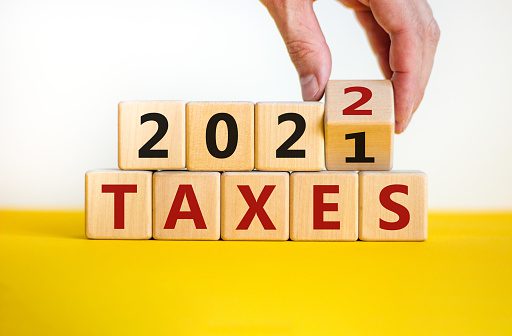Welcome to the topic Tax Filing Season Has Begun: Now What?
Tax Filing Season 2022 has now begun! Tax season is usually a time of stressful one-nighters; however, a little preparation can help it be a smooth experience.
Here are a few pointers on what to expect for the new tax filing season to help prepare you for what’s to come.
Tax Season
Taxpayers normally compile financial statements and reports for the prior year and file their tax returns during tax season, which runs from January 1 to April 15 each year.
Individuals in the United States must file their annual tax returns by April 15 of the following year after any reportable profits. Late penalty costs and interest charges apply to tax returns filed beyond the end of the tax season.
Tax season refers to the time frame wherein all income taxes must be filed prior to the deadline. The deadline is usually April 15 every year. If this date occurs on a weekend or holiday, it is rescheduled for the next working day.
For example, April 15, 2018, was a Sunday, and Emancipation Day was observed on Monday, April 16.
As a result, taxpayers had till April 17, 2018, to file their 2017 tax forms and pay any taxes owed. Late penalty penalties apply to tax returns filed after this date.

What Happens During Tax Season?
Throughout tax season, employers must provide tax documents to employees, contract laborers, and others, including royalty earners, that detail the information needed to complete a person’s tax returns.
Anyone who needs to file a tax return should do so by April 15 or apply for an extension.
For several tax preparers and accountants, tax season is a very hectic time.
The three-and-a-half-month timeframe at the start of the year is when the required documents, including salary and earnings statements, like 1099s or W-2s, are gathered to put together tax returns.
Though some people prepare their tax returns, many others rely on the knowledge of tax preparers and accountants to ensure that the documentation is submitted correctly and that the tax return’s financial outcome is improved.
The Internal Revenue Service (IRS) Free Submit program allows people who make $72k or less to file their taxes for free. People are required to file federal, state, and local tax returns.
All taxpayers should maintain copies of their prior-year tax returns for at least three years, according to the IRS. In the event of an IRS audit, a taxpayer must produce their records for the previous three years.
They will be required to present seven years of papers in extreme circumstances, such as suspicion of fraud.
A person with a gross income of more than $12,000 must pay federal tax, as per the IRS.
On any net earnings from self-employment of $400 or more, independent contractors, or what the IRS regards as non-employee compensation, must submit a report and pay self-employment taxes.
Employers have until January 31 to submit and transmit W-2s to their employees. Since the 2020 tax year, businesses that engage independent contractors must provide Form 1099-NEC to these non-employees.
This form replaces the 1099-MISC, which is the form still in use for payments such as rent, rewards, and health care, among other things.
Filing Early
There’s no need to wait until the last moment to file your taxes, even though many people do so on or around April 15 each year. Filing a tax return early might be advantageous for a variety of reasons.
Starting your tax filing procedure early allows you to gather the evidence you’ll need to claim all of your deductions. You’ll save yourself the hassle of late-night concerns about numbers and receipts.
Your accountant’s schedule will be more flexible, and they will most likely be able to begin working on your accounts right away. You will also thwart would-be identity thieves if you file early.
When anyone steals your identity and files a tax return in your name to claim a refund, you’ll have problems when you submit your factual information.
Then it’s up to you to show the IRS that the return filed in your name was bogus and provide them with the right information.
Stimulus Payments
Several Americans received stimulus checks based on their tax returns.
Due to a significant change in circumstance, such as having a child or experiencing a large loss in income, the IRS asks people who don’t typically file taxes and those who should have gotten more money, to file.
The only option to obtain the money you’re owed right now is to file a tax return and take advantage of the recovery rebate credit. If you don’t owe the IRS, this could result in a higher return than typical.
Having an up-to-date return on file may also assist you in receiving future payments. The procedure will be more straightforward for those who don’t usually file by creating a payment location with the IRS.
It may also assist some people in being eligible for benefits or more considerable tax relief.
You could also be eligible for several tax credits designed to help middle- and low-income Americans, including the earned income tax credit and the child tax credit, which could be valued hundreds of dollars based on your income and family size.
Getting A Tax Return Quickly
Most Americans could be anticipating a tax return, which might be the year’s most enormous windfall. Filing your taxes as early as possible is the quickest way to receive your return.
Furthermore, if you discover that you owe money to the IRS, filing early allows you to make payments to the IRS before the April deadline, following which you may face penalties.
It also gives you time to modify your withholding, so you don’t end up with a tax bill later.
The IRS advises taxpayers to submit electronically with direct deposit as soon as they receive the details they need to expedite refunds during the pandemic.
Tax software businesses, including IRS Free File partners, allow people to file their forms right away.
The IRS is prohibited from issuing a refund concerning the Earned Income Tax Credit (EITC) or the Additional Child Tax Credit (ACTC) before mid-February under the PATH Act.
This extra time is provided by the law to assist the IRS in preventing fraudulent refunds and claims from being granted, such as to identity thieves.
Have any questions regarding the topic Tax Filing Season Has Begun: Now What? Feel Free to comment below.




